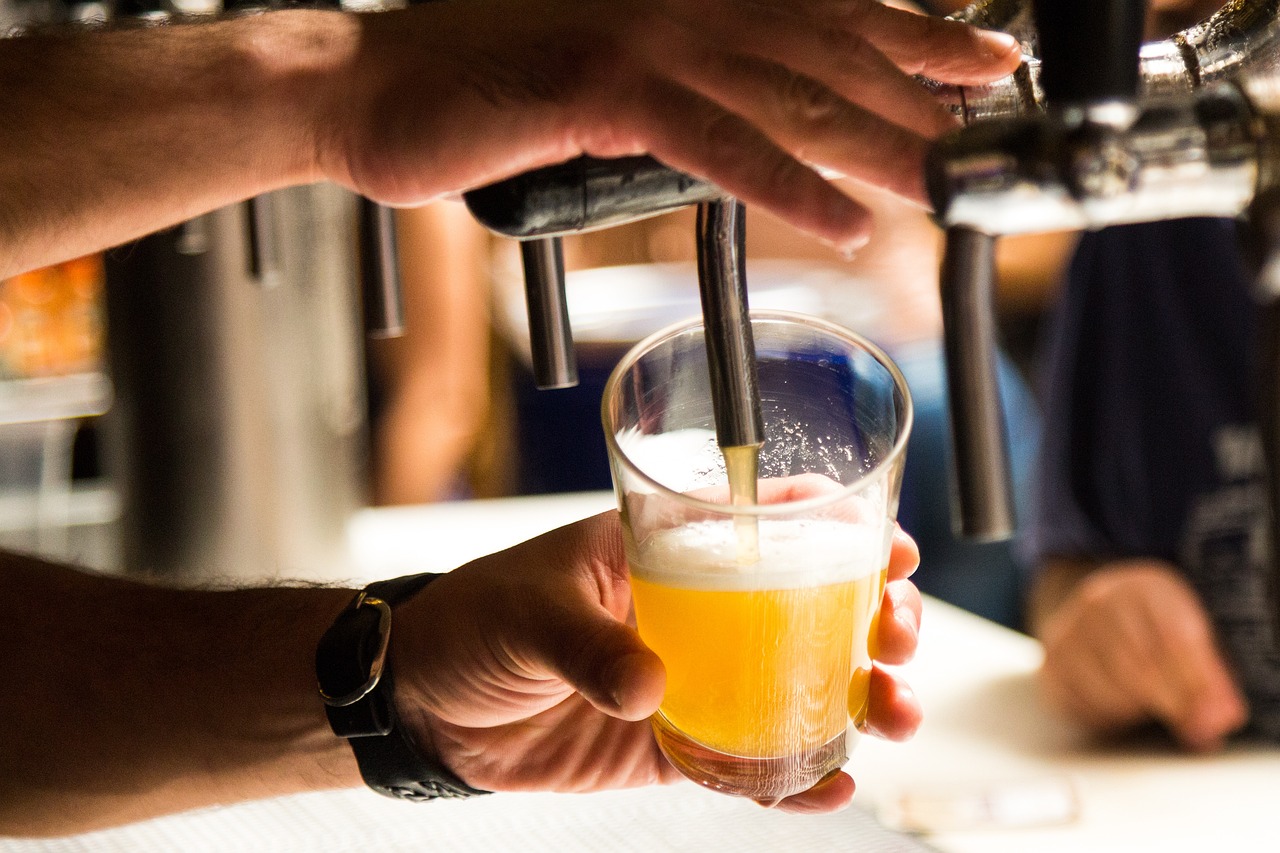News release
From:
Shrinking the pint can reduce beer sales by almost 10%
Reducing the serving size for beer, lager and cider reduces the volume of those drinks consumed in pubs, bars and restaurants, and could be a useful alcohol control measure, according to research published September 17th in the open-access journal PLOS Medicine. Theresa Marteau and colleagues at the University of Cambridge, UK, found that over a short intervention period, venues that removed the pint and offered two third pints instead, sold 10% less beer by volume compared with when pints were available.
When wine by the glass is offered in smaller servings, the amount sold decreases, but similar studies have not investigated the effect on other alcoholic drinks. Marteau and colleagues approached venues in England and asked them to remove the pint serving size and instead offer two thirds as the largest option for four weeks, with four-week non-intervention periods before and after as a comparison.
The team found that removing the pint reduced the daily mean volume of beer, lager and cider sold by 9.7%, although there was a slight increase in the amount of wine purchased, with one pub contributing to half of the increase of wine sales. They report that although customers did not complain, fewer than 1% of venues approached agreed to participate and the intervention involved only 12 establishments.
Further assessment is needed, particularly into whether people fully compensated for reduced beer consumption by drinking other alcoholic drinks, but the intervention merits consideration for inclusion in alcohol control policies. Smaller serving sizes could contribute towards reducing alcohol consumption across populations and thereby decrease the risk of seven cancers and other diseases.
The authors add, “Removing the offer of pints in 13 licensed premises for 4 weeks reduced the volume of beer sold. This is in keeping with the emerging literature showing that smaller serving sizes help us drink less and presents a novel way of reducing alcohol consumption and improving population health.”



 International
International



